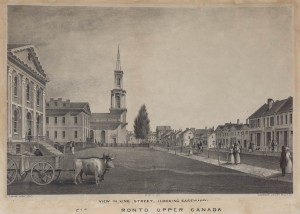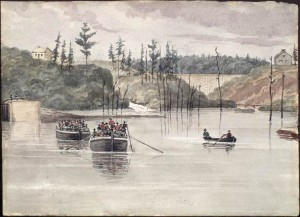Movie Pitch Presentation
Movie pitch
Type of movie: Drama
Who is the target audience: Teens, adults, and students.
Theme: Slavery and discrimination.
Plot:
The Merchant and the Slave
An Irish merchant named Rob is fired from his job.
The farming business is greatly affected by something called to potato famine, the potato business is failing because disease that destroys potato crops, all of Ireland’s cereal crops are being shipped to Britain. Because farmers have nothing to sell, merchants have nothing to sell.
Rachel is a black women, who is escaping slavery because she doesn’t want to be punished by whipping and also doesn’t want to be auctioned off to someone, so she is on the road escaping to Canada, you’d think just escaping from a slave state would be enough, but it isn’t, these slave hunters will capture anyone, anywhere.
Meanwhile Rob traveled to America by coffin ship, which was a horrible and disgusting experience, he’s on the road to Canada, to the Hudson’s Bay. He’s going to Canada because they accept all races.
Slave hunters find Rachel, and capture her, Rob is a witness to this and decides to help. He kills the hunters and frees her.
They get to know each other and decide to travel together.
They ride in the empty wagons of trains, all the way to the border of Canada.
They both decide to look for land, just to check prices and land quality, but all the good land is owned buy absentee landlords and land speculators, or they’re reserve lands. They’re traveling by train to the Hudson’s Bay were there’s lots of business in bartering fur. They buy lots of pemmican from metis at a train stop, and continue on their road to the Hudson’s Bay. Pemmican is dried meat with lots of fat typically carried in a leather bag.
They arrive to their destination, in a small town in the south of the Hudson. They find land outside of the town, that is easy to clear, and they buy it for cheap, using all the money they had.
Months later they got married. While Rob went to work, Rachel stayed home, and according to the “Female Emigrant’s guide” and other women, you’re supposed know how to cook, make and fix clothes, and other things, but she didn’t know how to do these things because she was never taught.
In the middle of the night, some slave hunter from the US kidnaps Rachel, Rob tries to save her but he get’s knocked out, Rachel is taken to a slave state in the US.
Rob wakes up and follows a trail made by Rachel’s heavy chains being dragged on the ground. He never stop’s following the trail, not even at night. He catches up to them while the hunter is asleep, Rob takes this opportunity to steal the keys to Rachel’s cuffs to free her.
On the road back to Canada, in a state up north they find some travelers, they were also slaves once, but they escaped, they travel from safe house to safe house, they call this way of traveling the “underground railroad”.
Once close to the border of Canda, Rob and Rachel find some metis, who are traveling by boat, portaging from one navigable water to another. So they travel with them for a while.
Knowing that they can’t go back to the Hudson, they go to a more rural part of Canada.
They live in a small home on the verge of being evicted, Rob can only get a job in the fur trade industry because he is discriminated for his race in that specific area. The fur trade doesn’t pay very much in this part of Canada.
Newspapers that come from America are full of racist comments and cartoons, Rachel hates that, because they make fun of her race every week. But sadly, can’t do anything about it.
Back in Ireland, no-one accepted immigrants, or in some places even the Irish were discriminated, no-one gave them jobs, and everyone let them rot in their own filth until they died of illness.
They’re lucky, that they even have the opportunity to get a job.
Rob contracted measles on the job, rendering him useless. Rachel tried to take care of him, but to no avail. Rob died that year…
Rachel, not being able to find a job because she’s a woman, she is evicted and forced to be homeless, begging for food. “Is this still better than slavery ?” She wonders.
Clearing Land: Clearing Land is the first thing to do with an area you plan to build on. So finding land that does no need to be cleared is pretty rare.
Bartering: Bartering is the exchange of goods, without the use of money.
Land Speculators: Land Speculators bought land for the sole purpose of selling it for a better price, so rich people loved buying up all the land because they knew it would be of high demand.
Absentee Landlords: These are landlords who buy land to rent it out to people, and by saying that “all the good land” is owned by them, shows how important these landlords are.
Reserve Lands: These lands are reserved for people of the government and churches.
Loyalty to Britain: We showed loyalty to Britain using the potato famine because it shows how devoted Ireland is to Britain.
Hudson’s Bay Company: We wanted to show the area of the Hudson’s Bay as a place where lots of bartering happens.
Metis: Metis are a mix of American Indian and Euro-American ancestry.
Portages: Portaging is the action of carrying a water craft in between 2 navigable waters. We mention this in our story when Rachel and Rob are traveling back to Canada with Metis.
Marriage, Domestic, Guides, and Survival: A woman was expected to be married to a man, and to help out at home. Rachel wanted to help around the house but she couldn’t because she never learned the necessary skills.
Discrimination: Discrimination is an important part of our story because that is what caused slavery and unemployment for our characters. Discrimination was a common thing back then because people didn’t learn much about the origins of races and such.
Acceptance of African Americans and Irish: In our story, the objective of their journey is to live in Canada, in hopes of not being discriminated.
Social Darwinism: Both Rachel and Rob are affected by Social Darwinism, but Rachel is affected the most because of American Newspapers and their offensive cartoons.
Potato Famine: The Potato Famine was caused by a disease that destroyed potato crops.This is the major event that drives Rob to give up and go to Canada.
Evictions: Evictions were pretty extreme in the 1800s, if you couldn’t pay the landlord, he would do anything to get you off his land. And that is why being on verge of being evicted is such a bad situation.
Coffin Ship Experience: Coffin ships were a common way for Irish immigrants to escape the famine. We didn’t want to our story focus on coffin ships, but we did want Rob to travel in one, because it shows how badly he wants to leave Ireland.
Slavery: Slavery was first introduced in America to help the production of tobacco crops. This was one of most important things in our story, because it was one of the worst things of the 19th century, and one of our characters happened to experience it.
Underground Railroad: The underground rail road or roads were trails and safe house to help black slaves escape to free states. Rob and Rachel find a group of black people traveling this way, they decide to join them.
Story by Botond Diosy and Blake McMullan





